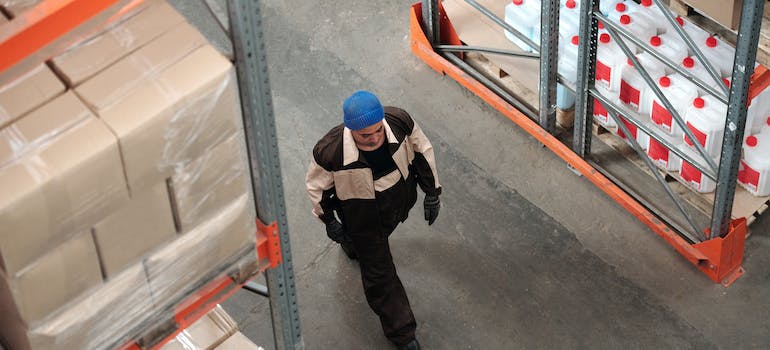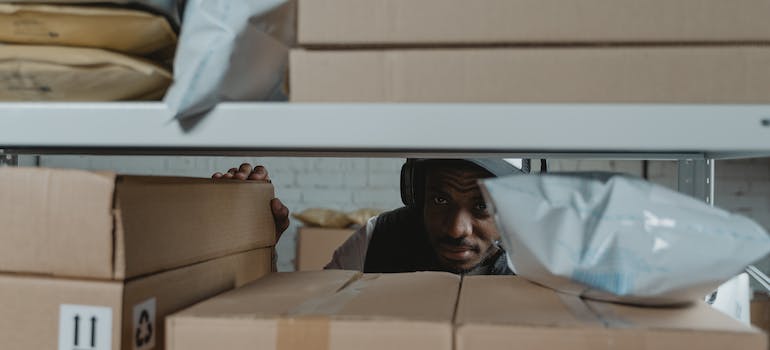Ways small Seattle businesses can reduce shipping costs
get a quote
For small businesses in Seattle, shipping costs are a significant concern that directly impacts profitability. Rising expenses in the shipping sector can lead to reduced margins, making it imperative for small enterprises to seek cost-effective solutions. Given Seattle’s advantageous position near a significant maritime port, the subject of shipping takes on additional relevance. This port-centric nature of the city offers opportunities but also creates a pressing need for businesses to manage shipping expenditures judiciously. In this PortaBox Storage article, you’ll discover how small Seattle businesses can reduce shipping costs without sacrificing efficiency or customer satisfaction.
Understand your company’s shipping profile
Your shipping profile is a fundamental step for any Seattle business aiming to reduce shipping costs. Start by collecting data on shipping frequency, volume, and destinations. Are most of your packages heading to local addresses, or do you often send shipments internationally? Knowing this will help you decide if it’s worth focusing on international shipping solutions or if the portable storage containers Seattle offers could deliver more competitive rates.
Seasonal trends in your business can also affect shipping costs. For example, a business specializing in outdoor equipment might experience increased demand in the summer, leading to higher shipping volumes. Knowing when these peak periods occur enables you to plan more effectively. You could negotiate special rates with carriers in advance or consider alternative shipping methods that are more cost-efficient during these times.

Lastly, the physical attributes of your shipments should not be overlooked. The average weight and dimensions of your packages can significantly influence shipping costs. For smaller items, parcel services might be the most economical, while freight services could be more appropriate for larger shipments. Understanding these factors can help you tailor your shipping strategies and select the most economical options for your small Seattle business.
Negotiate with multiple carriers
If you’re a Seattle-based small business shipping artisanal goods nationwide, presenting data on how many packages you ship to key locations each month could help you negotiate better terms with carriers. The more precise the data you can provide, the stronger your negotiating position will be. Many small businesses operate under the misconception that they don’t have the bargaining power to negotiate shipping rates.
However, the reality is different. Carriers are often willing to negotiate with businesses of all sizes to secure regular shipments. Even as a small business, the volume you bring could represent consistent revenue for a carrier, making them more likely to offer you a discounted rate. Don’t underestimate the value of your business; take the time to negotiate.
Take advantage of Seattle’s port location
Seattle’s proximity to a major port provides unique opportunities to cut down on shipping costs, one of which is the potential for bulk shipping and freight services. Businesses can consolidate shipments and send larger quantities less frequently to bring down the cost per unit. The port allows for a direct line to international markets, and many carriers offer competitive rates for bulk shipments that may be more economical than other methods.

Another way to leverage Seattle’s geographical advantage is by using nearby fulfillment centers, especially for companies that frequently ship across the country. Having a West Coast fulfillment center in Seattle for your western customers and perhaps another facility closer to the East Coast can reduce shipping times and costs. For instance, if a portion of your customer base is in Idaho or other inland northwest states, you can reduce shipping costs and time by using portable storage Boise solutions to store products closer to those customers temporarily.
Invest in packaging optimization
Packaging can be a hidden cost that significantly impacts your overall shipping expenses. Opting for unnecessarily heavy or bulky packaging inflates the weight of your shipments and can also increase the dimensional weight, which carriers use to determine shipping costs. Especially for small Seattle businesses that frequently deal with cross-country or international shipping, optimizing packaging can contribute to meaningful cost reductions. This is how:
- Lightweight Options: Materials like corrugated cardboard or recycled polymers can provide strength without adding much weight.
- Durability: The packaging should be strong enough to protect the product during transit. You don’t want to save on packaging only to incur costs from damaged goods.
- Sourcing: Look for local suppliers in Seattle to minimize transportation costs for packaging materials.
For products with varying sizes, Seattle businesses can reduce shipping costs by using adjustable or multi-use packaging. This approach allows you to tailor the packaging to fit different products, eliminating the need for excess packing materials. This is not just cost-effective but also an eco-friendly practice that can resonate well with customers who are increasingly conscious of sustainability.
Benefit from technology and automation
One of the most effective ways to manage shipping costs is through the use of shipping software that can compare rates in real time. Programs like ShipStation or Shippo interface directly with various carriers, allowing businesses to determine the most cost-effective shipping options quickly. This technology can be particularly beneficial for Seattle-based businesses that deal with a high volume of shipments, as it can instantaneously provide rate comparisons based on the shipping profile you’ve already established.

Another technological investment that can offer significant returns is automated label printers and package trackers. Label printers can speed up the shipping process by automatically generating shipping labels, thus reducing human error and saving labor hours. Package tracking solutions like Track-POD offer real-time visibility into the shipment process, improving both operational efficiency and customer satisfaction.
Lastly, automation benefits extend to integration with eCommerce platforms. Tools like WooCommerce for WordPress or Shopify have built-in shipping management systems that can be tailored to your needs. These platforms can automatically calculate shipping rates, print labels, and even provide customers with tracking information. This reduces manual input and enhances customer experience by making the entire ordering and shipping process transparent and quick.
Unlock the doors to savings and efficiency
From understanding your shipping profile and leveraging the city’s port location to optimizing packaging and adopting technology, there are numerous ways Seattle businesses can reduce shipping costs. In an environment where every dollar counts, even concepts like door to door storage Seattle provides can become a pivotal part of your logistics strategy, allowing for even more flexibility and savings. As you adapt and innovate, remember that Seattle’s unique logistical advantages offer a playground for small businesses to experiment with different cost-saving methods in shipping. So go ahead and explore various shipping options—savings and satisfied customers await.
